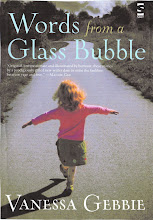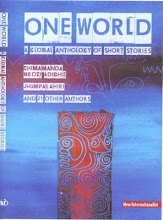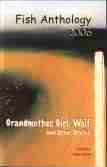But even though I now have a second book on the shelf with my name on, albeit as an editor, and ought to feel high as the proverbial kite, I don't. I feel flat. Tired. Low.
Maybe that's just me. I used to feel seriously low after placing at a comp, and couldn't understand it. I remember talking it through with friends, who said, 'me, too, sometimes. I suffer from a sort of aftershock.'
But then this comes along. A seriously depressing article in the Guardian, sweeping the blogosphere. Publishers are getting rid of many many established writers whose work is broadly like mine. So why would they take on a me?
HOW WATERSTONES KILLED BOOKSELLING - LINK HERE
Some quotes from the article follow:
** there is no new generation of British literary talent to follow the likes of Martin Amis, Julian Barnes and Ian McEwan.
**"There's been a slow bonfire of literary authors in the last 18 months," says Hamilton. "Publishers are sending out to pasture established literary novelists because they realise they aren't going to be sold by the chains. The complaint now from publishers is that most of their quality books hardly get a look in at all. In the past, sales for many literary novels were never very high, but now publishers are cutting down on their lists in desperation."
**"The emphasis given to the few is staggering," says Mark Le Fanu, general secretary of the Society of Authors. "It's our mid-list authors, who may not write the most commercial books but who often write the best, who are suffering. The big corporate publishers dominate the shelves and squeeze out smaller publishers."
**Hilary Mantel's agent Bill Hamilton worries that books are being sold like shampoo. "In retail, if you are selling a new shampoo you would expect to pay Boots, for instance, for a promotion, to make sure your shampoo is more visible than other ones. That pattern has been copied by Smith's and Waterstone's to an extent that has never been seen before in bookselling: you pay for almost any presence in the stores, you pay a huge amount for special promotions in the front of the store, and you go on paying every week even if the books are selling strongly anyway.
**"There seems to be a frantic scramble in the book retail world to rush downmarket in order to compete with the challenges of Amazon, the supermarkets and next the ebook. Publishers have to fight their corner, year after year, against ever more aggressive demands for higher discounts from the chains, but seem at a loss to know how to cope with the underlying problems they face. They fear speaking out about how their books are being sold."




.JPG)























12 comments:
V. depressing. I do not want to wash my hair with a book! Imagine the blurb: "why take two novels into the shower? This one will make your hair stand on end!"
Heck, Vanessa, that's really scary- I think we lit.fiction people will really have to go all out to keep the small publishers in business. (See Nicola Morgan's blog "Help, I need a publisher"- interview with the Linen Press founder. It sounds like small publishers will be the only ones willing to take on our work, and we'll have to do a lot of the selling of our books, let alone the marketing, by ourselves-dreadful thought, but thank goodness there will always be some people out there who don't just want to be fed Pap and Celeb. Bios from the likes of Tescos and WHSmith!!!
It is depressing indeed, V!
Thanks for posting this. I find these articles very interesting in their own right because one can't tell whether the publishing of this article reinforces a self-fulfilling prophecy (the demise of the novel) which Phillip Roth forecasted recently will happen in the next 25 years. Novels go the way of the Model T Ford.
At the same time, the number of these articles appearing in the last few years seem to indicate something is awry in this system of corporate publishing. Everything seems to be subsumed under this mantle of corporate greed and corporate profits. The arts become another vector for corporate profits. No one seems to ask (or at least in the media) whether or not the arts should have even been incorporated into this system of corporate profits. With everything being globalised, it was just assumed that reaching as many people as possible and generating bestsellers is a good thing. Maybe novels and book publishing should have been left in the hands of small publishers, a bit like how artisanal cheeses are farmed by independent outfits. And there's no plan to corporatize because it kills the whole point.
Is it possible to model book publishing on a different financial imperative?
It's a panic, V, not a trend. Like everything else while this recession lasts, we just have to keep our heads. And you have your finger on the pulse of so much in great writing, apart from producing great writing of your own. These things will align in your favour. Keep faith, and keep writing. Thank God for the itch, yes? If we were rational business-minded people we'd have thrown in the towel yonks ago. x
Small publishers are great. My own, Salt Publishing is lovely. They work so hard and produce beautiful books. But they lost their Arts Council grant last year and are stretched.
I notice they are beginning to publish novels as well... Elizabeth Baines just now, Wena Poon in 2010. Fantastic. Filling a widening gap.
But Waterstones can't be all that bad, surely? Isnt this a bit like the media whipping up recession-speak because it sells papers? And fuelled by a very good literary agent who is of course smarting at some of his writers losing out?
Thats bad - both the whipping up and the loss of some writers contracts...I feel for those, of course, and for the agent who works on their behalf... but should we be antagonising the behemoth, seriously?
A friend and colleague, Sara Crowley, who blogs at Asalted, has just won the Waterstones staff writers' bursary (not the right title, Im sure...) which gives a member of staff who is a writer enough cash to buy a good laptop, PLUS a week at the Arvon course of their choice. Congrats again, Sara!
Why do that if they aren't backing the emergence of good writing? Sara's work is very original, strong, and fuelled by solid underpinning premise. It tips towards the 'literary' whilst being totally itself. All strength to her, being helped along the way by Waterstones....
Hi Vanessa,
This news is more than just depressing, I think; it's actually frightening. You are right when you say that small presses are great but with arts councils squeezing down on funding the onus is going to be on them to actually sell books.
There was a time, not too long ago, when independent bookshops were everywhere, but now the big chains (and amazon) have more or less done for them, and I suppose they feel that they can name their terms.
I suppose all we can do is keep writing and hope the tide turns.
I'll weigh in just to say that I think, yes this is all true, but actually it is a sign of a petrified industry. All sorts of models are developing whereby writers can sell their books, reach a good-sized audience and make a decent living without the need of publishers at all. The business is in disarray. Which ultimately, if we hold our nerve, can only help us writers. Also, I'm not sure it does people like us any good to read these articles anyway. If we don't have to write, we won't - regardless of the industry. That's not ultimately why crazies like us keep turning to writing anyway.
You put your finger on a big problem. The small publishers who don't sell their books hard will close. Full stop.
Personally, as a writer, I don't actually feel depressed about this article, as it's airing a situation which has been going on for some time now unacknowledged, and that really has depressed me. I'm one of those who work has been raved about by agents and publishers but turned down in the end as not quite commercial enough to attract the bookshops and sell zillions. It's a situation you tend to keep quiet about until you finally find a publisher, as I did with Salt, because unless the commercial situation is acknowledged, it can simply look as if you're a no-hoper (and put off potential publishers altogether). So I'm grateful to Hamilton & co for speaking out.
Scott Pack defends Waterstones in the Bookseller as needing to respond to the market, which seems fair enough, but I don't see much evidence in our local branch of the more interesting books he says they also stock. Maybe I need to look harder, but then that in itself might tell you something... Writer and blogger Annie Clarkson has around all the chains in Manc asking for short stories, and has been met with blankness. Not sure if this means that indie publishers, won't survive... I think they're developing models which bypass the bookshops, such as direct mail order.
This might be Panglossian of me, but I can't help thinking it's a short lived problem. There are enough of us who want to read good literary and experimental stuff for there to be a market for it. All it needs is for someone with a will to set up the alternative Amazon, where good literary books are sold mail order, full price, coupled with extracts, listings, intelligent reviews and a chat forum and you have an indie bookshop in your home. Get all small publishers networked to it alongside the few biggies who still publish literary work, such as Bloomsbury and Faber, and the middle sized houses such as Serpent's Tail and Canonbury who proved there was a market gap that could be filled and built on....
Elaine's artisan cheese remark is on the head, I think. There's a market. People will sniff it out. We will end up walking straight past Waterstone's not registering it has anything to do with us, in the same way we walk past MacDonalds if looking for a cafe to write in, because it isn't where we'd go to buy a book. Maybe a new indie bookstore chain will open. Utterly bypass the corporate thugs, don't discount, but be a haven for readers. What I find frustrating, or limiting, at the moment is there is no single, central place to find new work. For short fiction - I look at the Short Review website, for poetry I look at Salt and Bloodaxe, for novels I don't really know where to start, so haven't read many new ones recently because the sort of work that excites me isn't in the shops. If there were one site people knew to go to, one central place in which indies pooled their tiny marketing budgets, where writers could advertise their readings and signings and workshops as well as sell their books.... it'd be my home page.)
Susannah, that sounds like a brilliant plan!
Fascinating info, Vanessa - if, as you say, depressing. But I am fired up by the views put forward in Susanna Rickards' comment. My view is that there'll always be a market for really good, high quality storytelling, and the recession may well strengthen the need (as a parallel, look how audience figures for Radios 3 & 4 have risen sharply over past year or so). Important to be realistic, tho': have cousin who is award-winning electro-acoustic composer, and he's always struggled for wider recognition beyond academe/the cognoscenti/Irish arts establishment - and so it may be to some extent for quality fiction.
Post a Comment